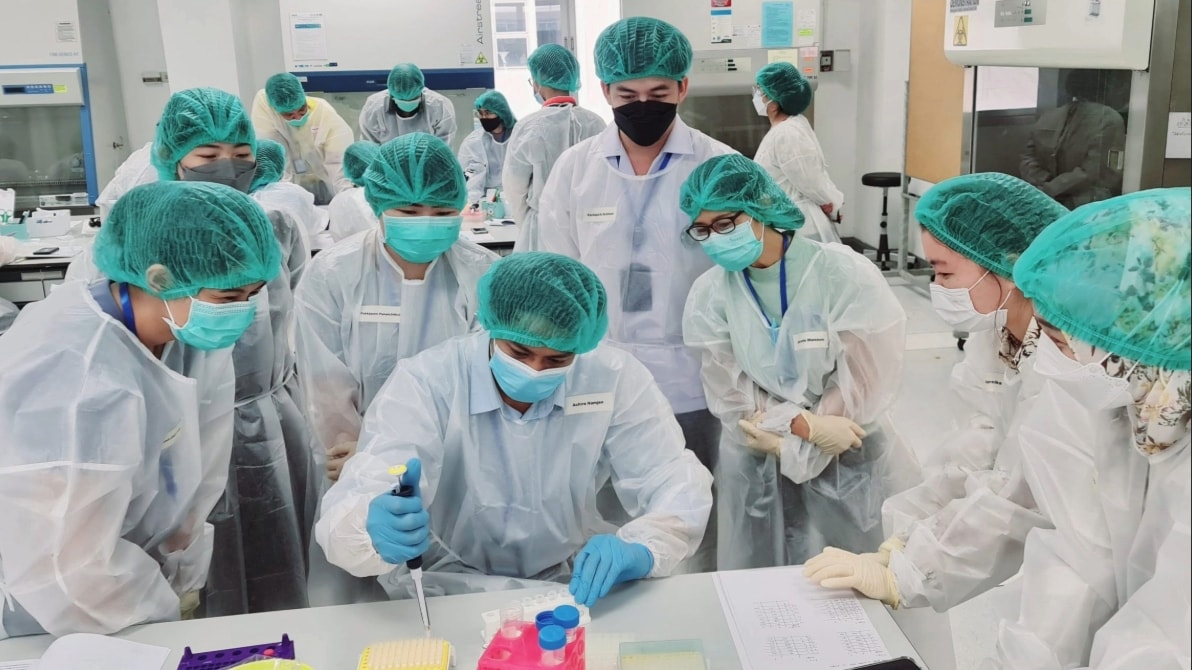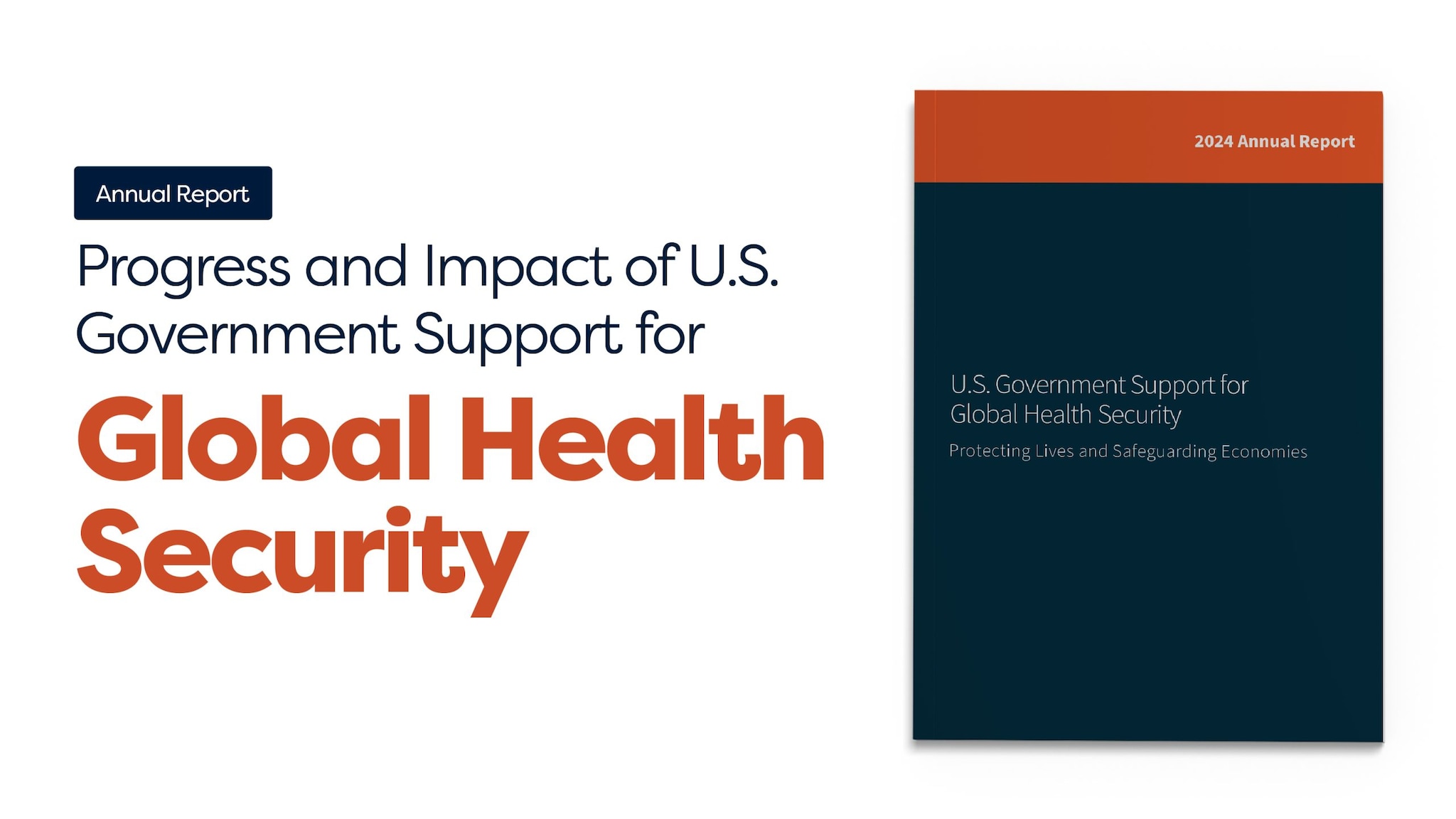Key points
- Global health security is national security. CDC's global staff are part of the first line of defense to stop outbreaks where they start.
- Global health security means being able to prevent, detect, and respond to infectious disease threats globally.
- CDC works to protect the health, safety, and security of the American people and fight global health threats worldwide.

Overview

Global health security is the existence of strong and resilient public health systems that can prevent, detect, and respond to infectious disease threats, wherever they occur in the world. In today's interconnected world, a disease threat anywhere is a threat everywhere – and outbreaks can disrupt American lives and livelihoods even if they never reach America's shores.
As the COVID-19 pandemic and other infectious disease outbreaks have demonstrated, diseases can cross borders, disrupt societies, and threaten global stability. Strengthening global health security is a vital national security priority, and is essential to protecting the health, lives, and economic well-being of the American people.
As the United States' health protection agency, CDC works 24/7 to save lives and protect people from health threats.
Core capabilities further our mission
CDC is a critical part of the U.S. government-wide effort to promote global health security. CDC works with countries around the world to detect and respond to emerging infectious disease outbreaks and stop them at their source to prevent further spread.
No matter the threat, we know we can protect the health of Americans and people around the world by strengthening six core public health capabilities:
- Data and surveillance
- Laboratory
- Workforce and institutions
- Prevention and response
- Innovation and research
- Policy, communications, and diplomacy
Longstanding expertise
CDC has over 60 country and regional offices that implement our global health programming, which addresses hundreds of diseases, health threats, and conditions that are major causes of death, disease, and disability. CDC's decades-long global health investments, training, and scientific diplomacy strengthen global capacity in laboratories, data, emergency response and the public health workforce. Thanks to extensive global presence and decades-long trusted partnerships, CDC's global staff are often the first call by host country governments when disease outbreaks start.
Collaborative efforts
Building global health security can't be accomplished alone. CDC assistance to partner countries has resulted in substantial improvements to their readiness to fight infectious disease threats. To accomplish global health security goals, CDC works closely with other U.S. government agencies, ministries of health, international organizations, and in-country partners.
U.S. Global Health Security Strategy
The United States and the international community can only achieve global, sustainable health security by working with all countries. The U.S. Government released the 2024 Global Health Security Strategy (GHSS) outlining U.S. efforts to prevent and prepare for the next pandemic, and to protect Americans and people around the globe from health security threats. CDC has long supported partner governments to address critical, immediate health needs and strengthen their ability to prevent, detect, and respond to emerging health threats.
Global Health Security Agenda
The Global Health Security Agenda (GHSA) aims to strengthen the world’s ability to prevent, detect, and respond to infectious disease threats. More than 70 countries have signed onto the GHSA framework. The United States made a strong commitment to the initial five-year period of GHSA and continues to support its strategic priorities. GHSA 2024's targets are for countries to take greater ownership of global health security efforts and improve health-security-related technical areas.
Joint External Evaluation
To measure countries' progress towards meeting GHSA goals, CDC and its partners developed the Joint External Evaluation (JEE). The JEE is a voluntary evaluation process that gives countries a starting point for improving their health security. Countries can use the JEE to identify their strengths and point out the most urgent needs within their health systems. This transparent, external evaluation process encourages countries to exchange vital information and work together towards a safer, healthier world.

